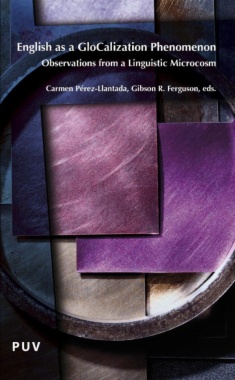Les contribucions que recull aquest volum descriuen, des de perspectives multidisciplinars, la utilització de l'anglès com a fenomen global/local en contextos acadèmics. En particular, el volum pren com a referent l'ús de l'idioma en un petit 'microcosmos' universitari i interpreta des de diferents punts de vista teòrics la construcció d'identitats socials i la negociació de significats entre els membres d'aquesta comunitat acadèmica.
- Cover
- Title page
- Contents
- Preface. John M. Swales
- Editor's introduction. Carmen Pérez-Llantada and Gibson R. Ferguson
- Part I. The Social Dimension of a Linguistic Microcosm
- 1. The complex dyamics of faculty-student relations in dialogic academic speech events: the research group meeting. Claus-Peter Neumann
- 2. The gender of power relations in academic speech: a cross-disciplinary approach. Mª Teresa Escudero Alías
- 3. Signaling speaker’s intentions: towards a phraseology of textual metadiscourse in academic lecturing. Carmen Pérez-Llantada Auría
- Part II. The Scope of Pragmatics Within a Linguistic Microcosm
- 4. Academic literacy vs academic talk: signaling nouns as devices of intratranslation. Rosa Lorés Sanz
- 5. Developing the message: retake phenomena in scientific lectures. Silvia Murillo Ornat
- 6. A corpus-based approach to nominalization in academic lectures. Ignacio Vázquez Orta
- 7. The use of ideational grammatical metaphor in academic spoken English. Ignacio Guillén Galve
- Part III. Pedagogical Insights of a "GloCalization" Phenomenon
- 8. Vagueness and imprecise numbers in the hard disciplines of the Michigan Corpus of Academic Spoken English. Ramón Plo Alastrué
- 9. «I think I know what you are saying». Epistemic lexical verbs as stance markers in American academic speech. María Rosario Artiga León
- 10. «What we mean is actually how we mean". A contribution to the analysis of sociopragmatic aspects of MICASE discussion sections. Irene Aixalá Gil
- 11. How to arrange MICASE-based pedagogical materials for the teaching/learning of EAP vocabulary. Luz Gabás Ariño
- Acknowledgements

